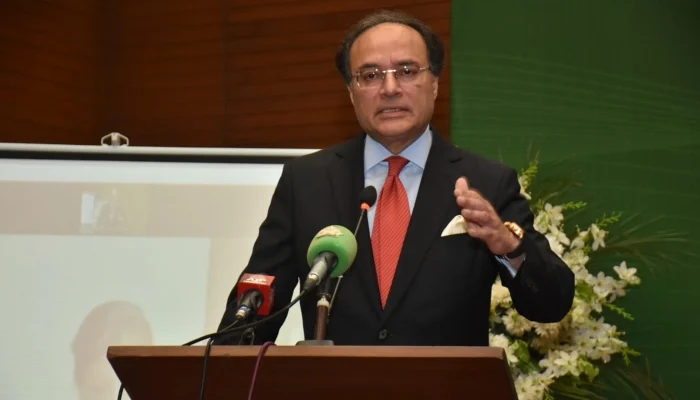In a recent press conference at the Pakistan Embassy in Washington, Finance Minister Muhammad Aurangzeb emphasized the importance of regional trade, particularly with neighboring countries like India. He stated that avoiding trade with neighbors is “illogical,” and highlighted Pakistan’s ongoing efforts to engage with its regional counterparts.
Focus on Regional Cooperation
Aurangzeb pointed out that geopolitical issues influencing trade are beyond his jurisdiction. However, he acknowledged that Pakistan is actively involved in regional organizations. He cited the South Asian Association for Regional Cooperation (SAARC) and referenced his recent participation in the Shanghai Cooperation Organisation (SCO) conference, expressing a strong interest in joining the BRICS alliance to enhance trade opportunities.
Economic Progress and International Support
During his trip to Washington, Aurangzeb discussed Pakistan’s economic advancements, particularly in reducing inflation. He credited government reforms for the increase in foreign exchange reserves, now exceeding $11 billion. Notably, he mentioned the keen interest shown by U.S. businesses in investing in Pakistan, alongside international lenders agreeing to streamline the project approval process.
World Bank Grant for Capacity Building
Aurangzeb also announced that the World Bank would provide a grant for capacity-building projects in Pakistan, underscoring the distinction that this funding is a grant and not a loan. This support is part of the World Bank’s International Development Association (IDA), which aims to assist nations at high risk of debt distress without requiring repayment.
In addition, he revealed that Pakistan would enter a ten-year Country Partnership Agreement with the World Bank, addressing critical challenges such as climate change, child nutrition, and education for out-of-school children. This partnership will align World Bank initiatives with Pakistan’s developmental priorities.
Challenges to Economic Growth
Addressing the challenges facing Pakistan’s economic growth, Aurangzeb highlighted the rapid population increase as a major concern. He indicated that this growth strains resources, exacerbates unemployment, and decreases per capita income.
Tax Reforms and Compliance
The finance minister reiterated the government’s goal to make the current IMF program the last by implementing necessary reforms. He stressed the need for a “DNA change,” advocating for an export-driven economy rather than an import-focused one.
Aurangzeb announced initiatives to enhance tax collection, stating, “We have a database of individuals who should be paying taxes, and we will use this to enforce compliance.” He indicated that tax evaders would face serious consequences beyond mere penalties, including restrictions on purchasing vehicles and properties.
The government aims to boost the tax-to-GDP ratio from 9% to 13%, supported by reforms within the Federal Board of Revenue (FBR).
Privatization Plans
When questioned about the privatization of state-owned enterprises (SOEs), Aurangzeb shared that various ministries had approached the cabinet committee regarding their essential assets. He explained that these discussions would lead to the privatization process, focusing not only on loss-making entities but also on profitable ones, such as the State Life Insurance Corporation.
He confirmed that the privatization of Pakistan International Airlines (PIA) and Islamabad Airport is underway, with hopes of achieving positive outcomes soon. Additionally, he indicated that once the Islamabad Airport privatization concludes, preparatory work for Lahore and Karachi airports would commence immediately.
Conclusion
Aurangzeb’s statements reflect Pakistan’s commitment to fostering regional trade and economic growth, while tackling challenges and leveraging international support for development. As the country moves forward, these initiatives aim to create a more resilient and sustainable economic landscape.

